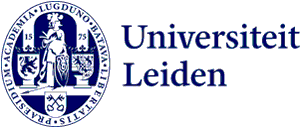Lecture
Study evening: Technology and Police training: Forging the next generation of policing professionals?
- Date
- Wednesday 14 May 2025
- Time
- Explanation
- Walk-in from 17.45 hrs.
- Address
- Wijnhaven
Turfmarkt 99
2511 DP Den Haag - Room
- 3.46
This study evening will be held in English, given the co-organization with the Norwegian Police University College.
Rapid technological changes create both opportunities and challenges for police education and training. This means that how we understand and use technology in police training today will forge the policing professional of tomorrow. Join us for this study evening in The Hague where we explore a set of questions on the theme of Technology and Police Training. How can we leverage VR technology to enhance police training and education? What are the challenges and risks induced by AI technology that future professionals should be aware of? How to conceptualize technological agency to avoid the risk of deprofessionalisation? How to train reflective practitioners who can critically engage with the technologies they use?
With the accelerating development of technologies, it is vital to reflect on the relationship between their affordances and police education and training across a variety of contexts. This event features academics and practitioners from The Netherlands and Norway and aims to elicit comparative discussions and cross fertilization with a European scope. Whether you're a researcher, practitioner, policymaker, or trainer, this event offers a platform to reflect and envision the future of professional policing in the digital age.
Speakers
Bas Boing
In his presentation, Bas Böing will explain how the Dutch National Police is using technology to advance discussions around racial profiling - strengthening the willingness and ability of officers to prevent ethnic profiling in daily practice. Drawing from his PhD research and his role as project leader, he will demonstrate how immersive VR training scenarios are being implemented to address operational dilemmas in daily policing. By integrating technology into police education, the Dutch police aim not only to improve operational effectiveness but also to support a deeper understanding of fair and equitable policing. The session will highlight lessons learned, practical implementation strategies, and how this approach contributes to a more reflective and responsive police force.
Bas Böing is a Project Leader with the Dutch National Police and a PhD candidate specializing in police reform and training. His research focuses on evidence-based training methods, particularly the use of immersive VR scenarios powered by AI to enhance decision-making and de-escalation skills. The simulation developed as part of his PhD was awarded the Europol Excellence Award in Innovation in 2023. Mr. Böing collaborates with academic institutions, policymakers, and police agencies to translate research into practice. He also serves on the Research Advisory Committee of the International Association of Chiefs of Police (IACP), advising on gaps in policing research.
Jens Erik Paulsen
Reflections on technology for and in police education
by Jens Erik Paulsen and Vlad Niculescu-Dinca
Facing an accelerated pace of technological change, police education stands at a crossroads. This presentation argues that emerging AI technologies are reshaping the competencies required for modern policing, and that these changes demand a rethinking of what it means to be a professional in this field. Drawing on insights from Science and Technology Studies and the Philosophy of Technology, we challenge traditional notions of professionalism and technology and instead argue for an adaptation and cultivation of the reflective practitioner, who can critically engage with the technologies mediating their work. We provide a background discussion of professionalism in policing and use examples from Norway and the Netherlands to contribute to a broader discussion of how police education and training must adapt to forge capable, autonomous professionals in a technologically mediated landscape.
Jens Erik Paulsen is a computer engineer and holds a PhD in philosophy. Currently he is Professor at The Norwegian Police University College in Oslo, and co-chairs The Strategic Group on Ethics and Technology at Europol’s Innovation Lab. His ongoing projects relate to procedural justice, explainable artificial intelligence, and the development of values-based evaluation methodologies for assessment of new technologies in law enforcement.
Monica den Boer
In her contribution, Prof. Monica Den Boer, professor of Policing Studies at Leiden University, will discuss the impact of technologies on policing and police professionalization. Technologies leave deep traces on the way police services are organized and how they conduct their activities. New technologies enable a constant gaze to which citizens are exposed when they work and travel, hence the relationship between police and society is undergoing a structural change. There is a dynamic interchange between national and international actors from the public and the private sector. Together they create vast security complexes which are propelled by the new technological possibilities. Examples include unmanned aerial surveillance, biometric identification or facial recognition. These technologies are actively stimulated and applied throughout international law enforcement communities. They may pave the path towards deeper transformations of policing, with pressing questions not only for accountability, legitimacy, and privacy but also for police education and training.
Vlad Niculescu-Dinca
Moderator
Dr. Vlad Niculescu-Dincă is assistant professor at Leiden University, teaching and researching at the Institute for Security and Global Affairs in The Hague. His teaching and research spans topics such as security networks, policing and technology, surveillance studies or urban policing.
For whom?
This study evening is open to all interested parties, with a focus on professionals in law enforcement, academics and students with an interest in policing studies, criminology and security studies. Registration is mandatory and can be done via the link below.
Organisation
This symposium is co-organised by the team Policing Studies at Leiden University, Institute of Security and Global Affairs, and the Norwegian Police University College.
Registration
Registration is free, but you do need to sign up to attend. Make sure to register in advance!
Register here
